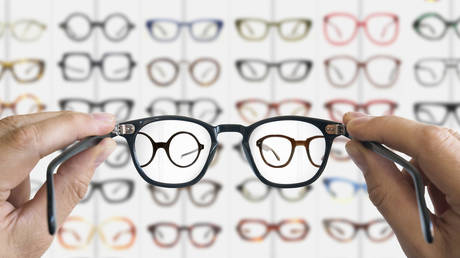
Researchers claim that ‘repurposing sunglasses’ could be a simple and sustainable way to fight the virus
A major study launched in Norway may put an end to long-standing debates about the effectiveness of glasses in protecting against coronavirus.
The Norwegian National Institute of Public Health (FHI) has announced the beginning of registration of volunteers for the study, nicknamed ‘Koronabrille’ (‘Coronaglasses’) and conducted in collaboration with Danish scientists and health authorities performing the same research in Denmark.
“Viruses can enter the body through the eyes, so it is not inconceivable that glasses and sunglasses can protect against corona and other respiratory viruses (for example, influenza). But it may also turn out that glasses do not protect at all. To find out, we need your help in a couple of weeks. We will in fact conduct a major scientific study to find out if glasses protect against corona!” the announcement reads.
The participants, who must be at least 18 years old and Covid-free, will be divided into two groups. One will be wearing glasses for a fortnight in crowded places, and another will not. Who will be in which group is to be decided by lottery, and therefore the Institute is inviting those who are both “willing to wear glasses out among people for 14 days” and “willing to NOT wear glasses out among people for 14 days.” Another important criterion is that the volunteers “should wear glasses or sunglasses that can be worn.” The scientists hope that they will be able to attract 22,000 participants, as such a big number in combination with high rates of infection could provide them with comprehensive results.
According to a professor of emergency medicine at the University of Copenhagen involved in the research, Kasper Iversen, there might be two reasons why people are allegedly better protected from Covid by wearing glasses.
The first is that coronavirus can be transmitted from person to person by particles which are able to enter the body via eye membranes. Another possibility is that people tend to rub their eyes and transmit viruses from their hands to the eyes. How effective glasses are in protecting the eyes from the virus is something that must be established during the research.
The scientists behind the study noted that their objective is “to assess whether encouraging people to wear glasses impacts on their risk of SARS-CoV-2 infection.” They added that “repurposing sunglasses for infection control could be a simple, readily available, environmentally friendly, safe, and sustainable infection prevention measure.”
An ongoing discussion about glasses as an instrument for Covid prevention was apparently revived after Norwegian cross-country skiers Johannes Hoesflot Klaebo and Emil Iversen were both photographed on their way to the Beijing Olympics wearing glasses, with Klaebo sporting very large ones.
“Extra is possible to prevent infection. But that is not my input. I have not asked them to wear glasses,” national team doctor Oystein Andersen told VG.




